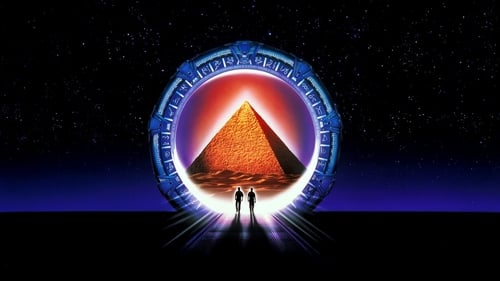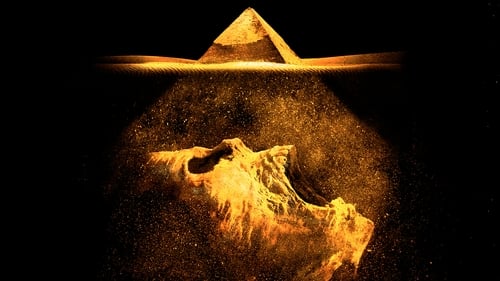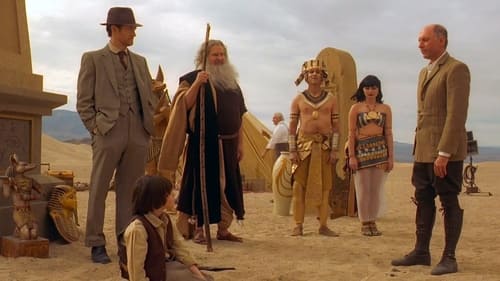The Search for Tutankhamun (2005)
Gênero : Documentário, História
Runtime : 0M
Director : Ferdinand Fairfax
Sinopse
Howard Carter hunts for the tomb of the boy king Tutankhamun.

Um egiptólogo (James Spader) não-reconhecido por suas teorias é convidado a trabalhar em uma base secreta e lá toma contato com um anel de trinta metros coberto de hieróglifos. Ele descobre a chave para se chegar a um novo mundo, pois aquele anel é um portão estelar e, junto com uma pequena tropa de elite, atravessa o portão e se vê diante de uma experiência e uma aventura inimaginável.

Adèle é uma jovem e aventureira repórter capaz de qualquer coisa para conseguir o que quer. Ela vai até o Egito em busca da cura da doença de sua irmã, na tumba secreta de um faraó. Ao retornar para Paris, ela percebe que o pânico tomou conta da população. Um ovo de dinossauro de milhões de anos se chocou misteriosamente no museu e a criatura está aterrorizando a cidade. Além disso, coisas estranhas continuam acontecendo no museu. Mas, nem o perigo e nem todo mistério por trás dos curiosos acontecimentos impedirá Adèle de conseguir salvar sua irmã. Prepare-se, a aventura está apenas começando!

Uma equipe de arqueologistas norte-americanos encontra uma rara pirâmide trilateral enterrada no deserto egípcio. Empolgados com a descoberta, conseguem acessá-la e iniciam a exploração. Perdidos nas escuras catacumbas, eles percebem que não estão sozinhos e, desesperados, buscam uma rapidamente uma saída antes que seja tarde demais.

Em 1923, o lendário realizador Cecil B. DeMille construiu uma réplica do antigo Egipto no deserto da Califórnia para o seu épico Os Dez Mandamentos. Quando as filmagens acabaram, ele ordenou misteriosamente que enterrassem todo o cenário. Agora, um casal de arqueólogos prestes a divorciar-se e um veterano da Guerra no Iraque descobriram o segredo que DeMille não conseguiu manter escondido… e libertaram um terror que não poderá ser parado.

As part of a high-tech forensic probe into the demise of Egyptian Pharaoh Tutankhamun, scientists use X-rays and CT scans as they attempt to reach a conclusion about just how this famed king died. In addition, they explore the mysterious curse on explorers linked to Tut's tomb excavation.

Combinando gráficos 3D, reconstruções estilizadas e investigações forenses, este especial aborda a história antiga com a modernidade do século 21, reunindo as mais recentes evidências científicas para construir a imagem definitiva do rei Tutancâmon.

Professor Joann Fletcher explores what it was like to be a woman of power in ancient Egypt. Through a wealth of spectacular buildings, personal artefacts and amazing tombs, Joann brings to life four of ancient Egypt's most powerful female rulers and discovers the remarkable influence wielded by women, whose power and freedom was unique in the ancient world. Throughout Egypt's history, women held the title of pharaoh no fewer than 15 times, and many other women played key roles in running the state and shaping every aspect of life. Joann Fletcher puts these influential women back at the heart of our understanding, revealing the other half of ancient Egypt.

A century after the world’s most exciting archaeological find - the tomb of Tutankhamun - we can witness the dramatic scenes of its discovery and marvel at its extraordinary treasures exactly as they were then, in colour.

It is one of Egypt's enduring mysteries. What happened to Nefertiti and her husband, Akhenaten - the radical king, and likely father of King Tut? In a dark and mysterious tomb located in the Valley of the Kings, there is a small chamber with two mummies without sarcophagi or wrappings. At times, both have been identified as Queen Nefertiti by scholars, filmmakers and historians. But the evidence has been circumstantial at best.

The adventurous life of Natacha Rambova (1897-1966), an American artist, born Winifred Kimball Shaughnessy, who reincarnated herself countless times: false Russian dancer, silent film actress, scenographer and costume designer, writer, spiritist, Egyptologist, indefatigable traveler, mysterious and curious; an amazing 20th century woman who created the myth of Rudolph Valentino.


For 45 centuries, the Great Sphinx has cast its enigmatic gaze over Egypt's Giza Plateau. The biggest and oldest statue in a land of colossal ancient monuments, its scale is staggering: The mighty head towers as tall as the White House, while its body is nearly the length of a football field. This strange half-human, half-lion image has inspired countless fantastic theories about its origins. How was it built, and who or what does it represent? Surprisingly, the scribes of the period when it was built—during Egypt's Old Kingdom—passed over it in silence. Adding to the mystery, archeologists found that its creators abruptly discarded their tools and abandoned the Sphinx when it was nearly complete. Searching for clues, NOVA's expert team of archeologists, including Mark Lehner, director of Ancient Egypt Research Associates, carries out eye-opening experiments.

The cosmos of the incurable Margarethe. Her journey through the mysteries of the Egyptian underworld. Will she be coming forth by day? Film in two parts by Carsten Frank.

Berlin’s Museum Island, the cultural center of the German capital on the Spree river, houses a large number of art pieces from all over the globe, from the Stone Age to the present day. A walk through their great institutions to marvel at their masterpieces.

Almost 100 years after the discovery of King's Tut's Tomb, it is time to tell the story in a new light. Using 2D and 3D imagery to reconstruct the tomb, the mummy, the funerary objects and the topography of the famous valley of the Kings.

Howard Carter hunts for the tomb of the boy king Tutankhamun.

No auge da expansão geográfica do império romano, o general Lívio (Stephen Boyd) comanda a nova política do imperador Marco Aurélio (Alec Guinness), que quer a pacificação de fronteiras e a adoção para os povos conquistados uma certa autonomia. Mas Marco Aurélio acaba envenenado por Commodus (Christopher Plummer), filho ilegítimo que assume o trono e mergulha Roma no caos político e administrativo, o que dá origem à queda do Império Romano.














